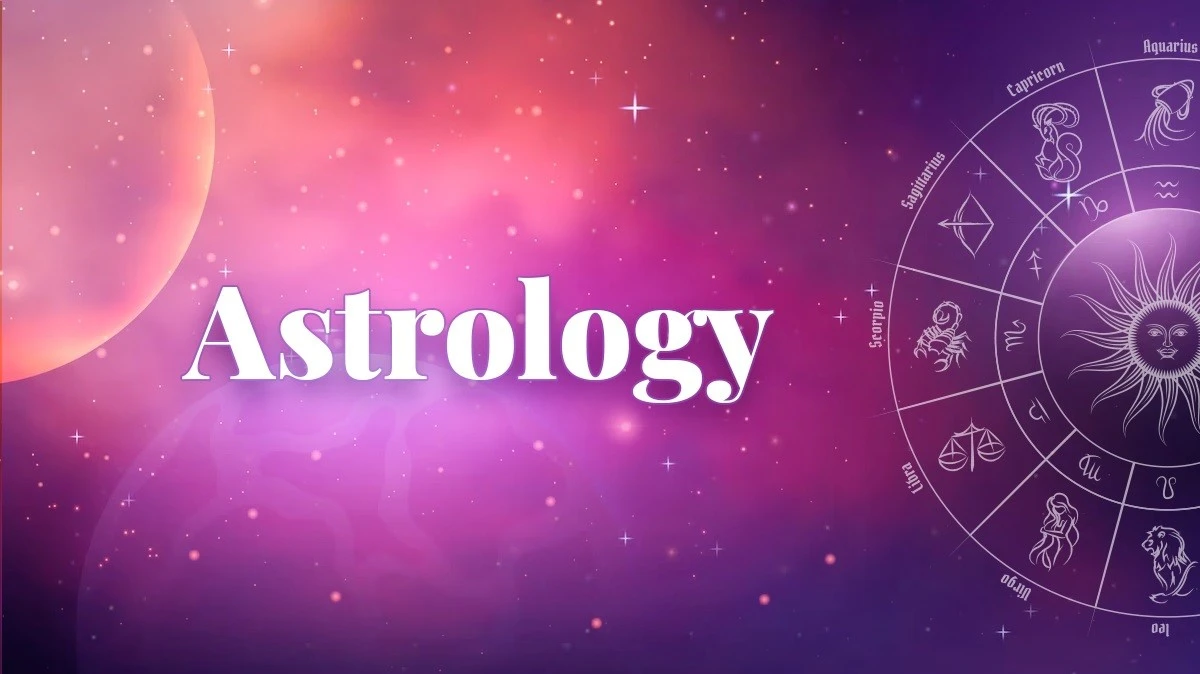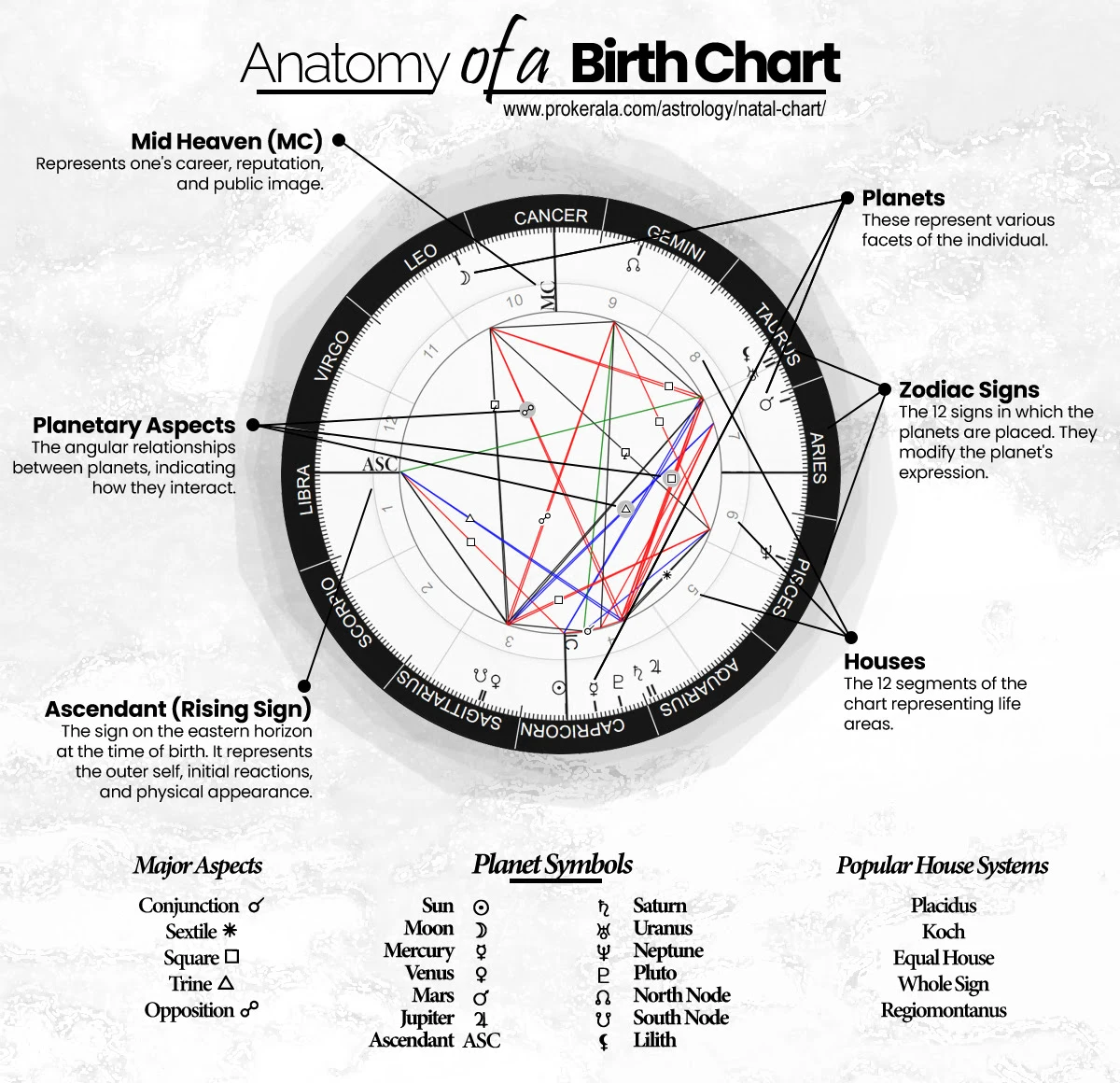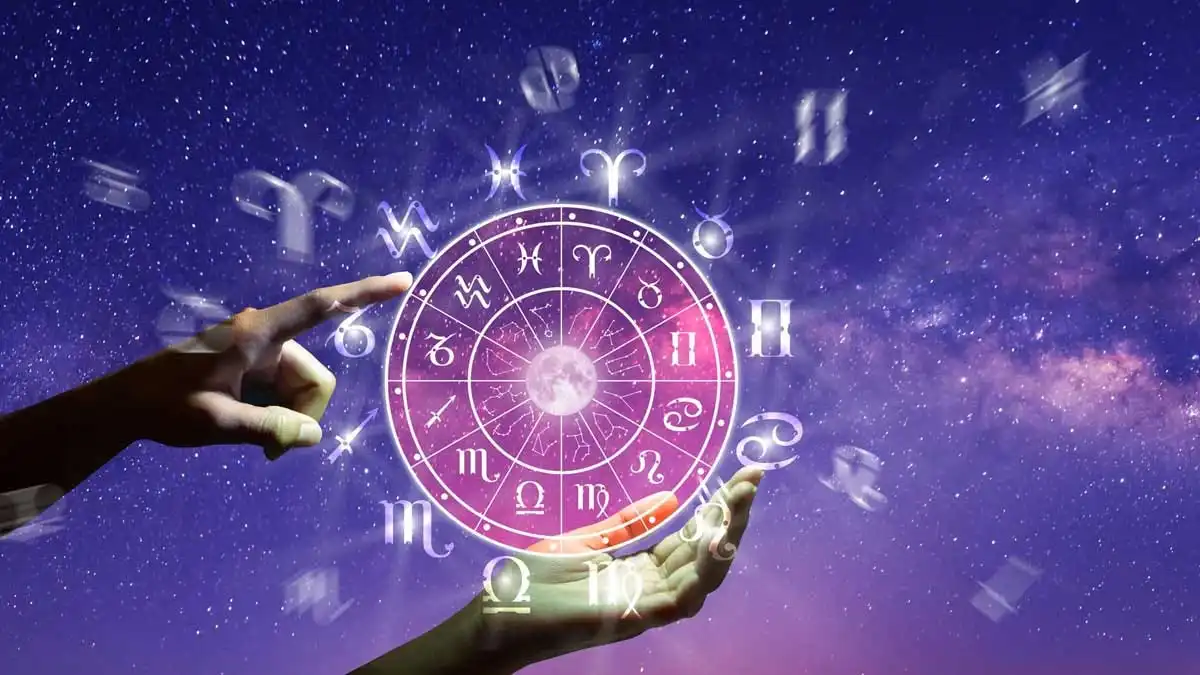Contents

Astrology is a system that connects the positions of celestial bodies with human events and life. Throughout the history of mankind, astrology dates back thousands of years and has been cultivated by various societies. Despite being a pseudoscience, astrology is still popular and continues to have an impact in several cultures throughout the planet. This article addresses the origins of astrology, gives an outline on how it functions and its impact today.
Introduction & History Of Astrology
The origins of astrology date back to 2000 BC in Mesopotamia, one of the first urban centers. Astrology was first organized in ancient Babylon. They kept track of how the planets and stars moved around, and attempted to correlate them with things that were going on in Earth; for example wars or natural catastrophes. By the 4th century BC, Babylonian astrology had been officially mixed with Greek philosophy into a systematic effort to deify celestial objects as potent forces that influence human life.
It was further added by the Greeks and then spread to Rome first, Arabia next and had reached a mutated form. Stephanie: Astrology was studied in the universities of Europe during the Middle Ages. Indeed, many famous scientists-including astronomers and even a theoretical physicist-such as Johannes Kepler and Isaac Newtonwere also accorded titles of great astrologers through the practice of natal astrology.
Basic Principles of Astrology
Astrology is based on the idea that the positions and movements of celestial bodies at the time of a person’s birth can influence their personality, relationships, and future. The foundational system in Western astrology involves the twelve zodiac signs, which each correspond to specific time periods in the year. Each zodiac sign has unique characteristics and traits, influencing the personality of individuals born under those signs.
The Twelve Zodiac Signs
- Aries (March 21 – April 19)
- Element: Fire
- Modalities: Cardinal
- Characteristics: Aries individuals are known for their courage, determination, and enthusiasm. They are natural leaders who love to start new projects.
- Taurus (April 20 – May 20)
- Element: Earth
- Modalities: Fixed
- Characteristics: Taureans are reliable, patient, and practical. They value stability and are often very loyal and dedicated.
- Gemini (May 21 – June 20)
- Element: Air
- Modalities: Mutable
- Characteristics: Geminis are adaptable, outgoing, and intelligent. They are known for their communication skills and love for variety and new experiences.
- Cancer (June 21 – July 22)
- Element: Water
- Modalities: Cardinal
- Characteristics: Cancers are intuitive, nurturing, and protective. They are deeply emotional and value their home and family.
- Leo (July 23 – August 22)
- Element: Fire
- Modalities: Fixed
- Characteristics: Leos are confident, generous, and charismatic. They are natural performers who love to be in the spotlight.
- Virgo (August 23 – September 22)
- Element: Earth
- Modalities: Mutable
- Characteristics: Virgos are analytical, meticulous, and practical. They are perfectionists who strive for order and efficiency.
- Libra (September 23 – October 22)
- Element: Air
- Modalities: Cardinal
- Characteristics: Libras are diplomatic, charming, and balanced. They seek harmony and are often concerned with justice and fairness.
- Scorpio (October 23 – November 21)
- Element: Water
- Modalities: Fixed
- Characteristics: Scorpios are passionate, resourceful, and determined. They are known for their intensity and emotional depth.
- Sagittarius (November 22 – December 21)
- Element: Fire
- Modalities: Mutable
- Characteristics: Sagittarians are adventurous, optimistic, and independent. They have a love for travel and knowledge.
- Capricorn (December 22 – January 19)
- Element: Earth
- Modalities: Cardinal
- Characteristics: Capricorns are disciplined, responsible, and ambitious. They are hard workers who value tradition and structure.
- Aquarius (January 20 – February 18)
- Element: Air
- Modalities: Fixed
- Characteristics: Aquarians are innovative, humanitarian, and independent. They are forward-thinking and often involved in social causes.
- Pisces (February 19 – March 20)
- Element: Water
- Modalities: Mutable
- Characteristics: Pisceans are empathetic, artistic, and intuitive. They are dreamers who are often deeply in touch with their emotions.
The Horoscope or Natal Chart

In addition to the zodiac signs, astrology also involves analyzing the positions of the planets, the sun, and the moon at the exact time and location of a person’s birth. This creates a “horoscope” or “natal chart,” which is a map of the sky at that moment. The natal chart is divided into twelve houses, each representing different areas of life, such as relationships, career, and home.
- The Sun Sign: Represents the core of one’s identity and ego.
- The Moon Sign: Reflects one’s emotions, instincts, and subconscious.
- The Ascendant (Rising Sign): Indicates how one presents themselves to the world and their spontaneous reactions.
The Planets and Their Influence
Each planet in astrology is associated with different aspects of life and personality traits:
- Sun: Ego, vitality, and individuality.
- Moon: Emotions, intuition, and inner self.
- Mercury: Communication, intellect, and reasoning.
- Venus: Love, beauty, and relationships.
- Mars: Energy, action, and aggression.
- Jupiter: Growth, expansion, and abundance.
- Saturn: Discipline, responsibility, and limitations.
- Uranus: Innovation, rebellion, and sudden changes.
- Neptune: Dreams, spirituality, and illusions.
- Pluto: Transformation, power, and regeneration.
Houses in the Natal Chart
The twelve houses in the natal chart each represent different areas of life and their significance:
- First House: Self and personal identity.
- Second House: Wealth, possessions, and values.
- Third House: Communication, siblings, and short trips.
- Fourth House: Home, family, and foundations.
- Fifth House: Creativity, romance, and children.
- Sixth House: Health, daily routines, and work.
- Seventh House: Partnerships and marriage.
- Eighth House: Transformation, death, and shared resources.
- Ninth House: Philosophy, travel, and higher education.
- Tenth House: Career, status, and public life.
- Eleventh House: Friendships, groups, and aspirations.
- Twelfth House: Secrets, subconscious, and spirituality.
Aspects and Their Meanings
The angles between planets, known as aspects, also play a crucial role in astrology. These aspects describe how planets interact with each other and influence a person’s life:
- Conjunction (0°): Planets are in the same sign and amplify each other’s energies.
- Sextile (60°): Planets are two signs apart, creating harmonious opportunities.
- Square (90°): Planets are three signs apart, indicating tension and challenges.
- Trine (120°): Planets are four signs apart, suggesting ease and natural talent.
- Opposition (180°): Planets are six signs apart, reflecting balance and conflict.
Astrology in Modern Life

Astrology, skepticism aside, is relevant in life today. In any case you consider, even if just for fun in a moment of leisure, this is nothing unusual: many people turn to daily horoscopes as references on what may come ahead and how they can organize their days. The availability and proliferation of astrological information has grown in part due to astrology sites proliferating online as well as the existence of astrology apps.
Psychology and therapy have turned to astrology as well. There are therapists of all kinds who use astrology as a tool to help them in providing further insight into their clients and unconscious mental patterns, behaviours or relationship dynamics. Although this strategy is contradictory, there are customers who believe they get pleasure from this union.
Criticism and Controversy
As such it is widely viewed as a pseudoscience; The scientific community, for instance has pointed out the rather bizarre nature of it and dismissed all its contentions with few pulling through empirical validation. Most of the scientists and skeptics believe astrology as pure coincidence with no scientific base in it, wherein they argue that all correlations between the celestial positions (and their movements) to our events on earth are just a matter of chance. Though adherents of astrology maintain that the effects of celestial bodies are less concrete, more symbolic and psychological.
Another controversy relates to the belief in such practices as astrology constituting a basis for significant undertakings, with people often choosing not to use them on matters of financial or medical importance. Astrology, to be clear, has the potential for enacting irrationality… even if it is of a potentially dangerous caliber. Hence, it is important that astrology should be used as a secondary guide.
Conclusion
Astrology is thousands of years old, and remains relevant today. Astrology, though considered a pseudoscience for its absence of reason (frequently in light of the fact that ancient cool logical ideas were not recognized during old times), is still followed around by many individuals nowadays. We look at the history, fundamental principles and impact of astrology in contemporary societies to underscore richness and multiplicity that defends human beliefs. While many may snub astrology, as a method of self-reflection it is deeply ingrained in our culture – and an artifact so universal has to be traced throughout history.



